- Home
- Harlan Coben
Run Away Page 14
Run Away Read online
Page 14
“Yeah, whatever. You still play the odds, right? Try to figure out what’s safe and what’s risky, all that?”
Simon nodded.
“So you know what the two most likely possibilities are, don’t you?”
“Tell me.”
“One, your daughter killed Aaron and is on the run.”
“And two?”
“Whoever killed Aaron took or killed her too.” Enid Corval took a sip of her drink. “Come to think of it, Possibility Two is much more likely.”
“What makes you say that?” Simon asked.
“Junkies aren’t great at not leaving clues or eluding the police.”
“So you don’t think she killed him?”
“I didn’t say that.”
“Let’s assume you’re right,” Simon said, trying to stay methodical here, detached. “Why would someone take Paige?”
“No clue. Hate to say this, but odds are, she’s dead.” She took another sip. “I’m still not sure why you’re here.”
“I’m hoping you know something.”
“I haven’t seen Aaron in months.”
“Do you recognize this guy?”
Simon handed her his phone. Elena Ramirez had texted him a photograph of her client’s missing son, Henry Thorpe.
“Who is he?”
“His name is Henry Thorpe. He’s from Chicago.”
She shook her head. “I don’t know him. Why?”
“He may be connected into this.”
“Into this how?”
“I don’t have a clue. It’s why I’m here. He’s missing.”
“Like Paige?”
“I guess.”
“Can’t help you, I’m afraid.”
A scowling biker with a shaved head pulled out the stool between them so he could lean on the bar. Simon noticed the black iron-cross tattoo and maybe a half swastika sticking out from under his shirt sleeve. The biker noticed him noticing and stared him hard in the eye. Simon stared back and felt the red start to rise.
“What are you looking at?” Biker Boy said.
Simon did not blink or move.
“I asked you—”
Enid said, “He’s with me.”
“Hey, Enid, I didn’t mean—”
“And you’re interrupting a private conversation.”
“I, I mean, how was I supposed to know?”
Biker Boy sounded scared.
“I was just getting some beers, Enid.”
“That’s fine. Gladys will bring them over to you. You wait over by the pool table.”
And with that, Biker Boy was gone.
“Enid,” Simon said.
“Yeah?”
“What is this place?”
“Private club.”
“Yours?”
“You here to ask about your daughter or about me?”
“I’m just trying to figure this all out.”
“What out?”
“Do you mind telling me about Aaron?”
“What about him?”
“I don’t know. Anything. Everything.”
“Can’t much see the purpose.”
“There are threads here,” he said, the words sounding weird coming from his mouth even to him. “Connections. I don’t know what they are, but I feel like I’m missing something. So I’m asking questions and plowing ahead and hoping.”
She frowned. “You’re going to have to do better than that.”
“My wife was shot yesterday,” Simon said.
Enid looked a question at him.
“She’s alive but…We were looking for Paige. Where they lived. Where Aaron was killed.”
He told her the story, taking chugs of the Pabst as he went along. Simon couldn’t remember the last time he drank a cold beer this early in the day, but today, in this place, it felt right. Simon glanced around the room as he spoke. Biker Boy wasn’t the only one with white supremacist tattoos. A number of guys had swastikas, and yeah he was outnumbered and he had bigger fish to fry at the moment, but this was America now, his country, this crap just out in the open and accepted, and he could feel his blood boil despite it all.
“You saw where Aaron grew up,” Enid said when he finished.
“On that farm.”
“It’s not really a farm. It’s a tourist spot, but yeah. Nice, right?”
“Seems so.”
“Seems so,” she repeated with a nod. “When Aaron was little, he lived in the actual inn. Back then, they only rented out six rooms. The family lived in the rest. Then they grew. Started renting out all ten rooms. Five, six years ago, we built those additions, so now it’s up to twenty-four rooms. We got a pretty good restaurant too. Wiley always calls it a ‘bistro.’ Thinks it sounds fancier. And the gift shop does a nice business. Sells souvenirs and candles, junk like that. I’m getting off topic, aren’t I?”
“Not at all.”
“You want to know about Aaron.”
Simon didn’t reply.
“Well, Aaron, even as a kid, he was always a little dark, if you know what I mean.”
One of the tattoo guys met her eye by a back door. Enid nodded and the guy slipped out.
“I don’t see how any of this could possibly help you,” she said.
“They.”
“What?”
“You said, ‘They only rented out six rooms.’ They.”
“So?”
“I’d think you’d say ‘we’ instead of ‘they.’”
“No ‘we’ yet,” she said. “Wiley and I weren’t married back then.”
“Back when?”
“When Wiley lived in the original inn.”
“But you said Aaron lived there.”
“Yeah. With Wiley. I’m his stepmom. I wasn’t on the scene until he was nine. Truth be told, I’m not the maternal type. Surprised, right? Aaron and me, we were never close.”
“And his real mom? Where is she?”
Enid glanced at the back door. The tattoo man came back in, making sure that Enid spotted him. Her glass was empty. Gladys with the Hay Hair filled it without being told.
“Mrs. Corval?” Simon said.
“Call me Enid.”
“Enid, what happened to Aaron’s real mother?”
“It has nothing to do with any of this.”
“It might.”
“How?” Enid turned now, placing one arm on the bar, and faced him full-on. “I mean, I told Aaron from Day One in here: You don’t try it. Not ever. Not a taste. He saw every day what that crap does to you. Still he ended up murdered in a junkie-infested shithole. So tell me, Mr. Greene. How could his birth mom have anything to do with Aaron ending up like that? And while you’re at it: How could his birth mom have anything to do with your daughter vanishing into the wind?”
“I don’t know,” Simon said.
“I’d probably be more the one to blame, don’t you think?”
Simon said nothing.
“His dad and I get married. When he’s a teen he wants to start hanging out here. That’s the problem with growing up in a quiet place. People think it’s magical or some shit. Beauty bores. It traps. Someone like Aaron, he’s got that edge in him. Just the way he is. Like me, even though we aren’t blood.”
He wanted to ask what this place was, but that would be the wrong way to go. He shifted gears and asked, “Was Aaron’s birth mother at the service today?”
Enid kept her head down.
“Can’t you at least tell me—”
“No,” Enid said. “She wasn’t there.”
“Is she still alive? Did she have any kind of relationship with her son?”
“I don’t know you, Mr. Greene.”
“Yeah, you do. I mean, you know enough. I don’t care what you do here or what’s going on with the inn or any of that. I don’t mean you the least bit of trouble. But at the risk of sounding one-note, my daughter is missing.”
“And I don’t see how that has anything to do with—”
“It probably d
oesn’t,” he interrupted. “Except that’s not how it feels, does it? The police think maybe Paige killed Aaron to save herself. Or maybe I did it. Or my wife. To protect our child. Or maybe it was a drug deal gone wrong. Those are all good theories, but I’m asking for your help.”
She started swirling her glass, her eyes on the liquor.
“Is Aaron’s mother alive or not?”
“The truth?” Enid looked up and studied his face for a very long time. “I don’t know.”
“You don’t know if she’s alive or dead?”
“That’s right.” Enid turned to Gladys. “Get my friend here another beer and bring it to the corner booth. He and I need to talk for a bit.”
Chapter
Sixteen
The entrance to Tattoos While U Wait was blocked off with old-school A-frame traffic barricades, the kind with slanted reflective orange-and-white stripes running across the horizontal beam.
Elena Ramirez spotted two fully emblazoned police cars plus two other vehicles that looked to be unmarked. She pulled her rental Ford Fusion with the overbearing cherry scent into the tattoo parlor’s entry between the highway and the barricades.
A cop frowned and started toward her.
“You’ll need to leave.”
“What’s going on here?”
“Please remove your car from the premises.”
Elena could wave her credentials, but they probably wouldn’t get her anyplace. She also had no idea what the situation was or why the police were here, and it was never a good idea to go in blind.
Time to do a little recon.
Elena thanked the officer, put the car in reverse, and got back onto the highway. She pulled off a hundred yards down the road at a Sonic Drive-In. She took out her phone and made some calls. It took maybe half an hour to get the details on the double murder from the day before.
The two victims were Damien Gorse, age twenty-nine, co-owner of the parlor, and eighteen-year-old Ryan Bailey, a high school senior who worked there part time. The initial report indicated that the two victims had been shot in a robbery gone wrong.
Wrong, Elena thought to herself, being the operative word.
She made a few more calls, waited, got the confirmation. Then she headed back down the highway and pulled up to those barricades. The same police officer moved one of them aside, so that she could pass. He pointed for her to park on the left. She nodded a thanks and did as requested.
Elena looked in her rearview mirror and tried on a sympathetic, we’re-all-in-this-together smile. Meh. This part would be a pain in the ass. Cops and egos. Tough recipe. Add in a dollop of territorial bullshit and customary dick swinging plus the rarity of landing a single murder case let alone a double murder, and Elena expected a shitshow of epic proportions.
A man Elena figured was midthirties, maybe forty, came out of the tattoo parlor’s front entrance, pulled off his crime scene gloves, and headed toward her. His stride was confident but not cocky. The guy was good-looking as hell. More lumberjack than pretty boy, what they used to call “rugged.” If she still had a type—and Elena had felt dead in that area since Joel’s death—this guy would be it.
The cop gave her a nod and a tight smile, an appropriate greeting under the circumstances.
“You must be Special Agent Ramirez,” the man said.
“Retired.”
She shook his hand. His hand was big. Like Joel’s. She felt another pang.
“I’m Detective Dumas. Everyone calls me Nap.”
“Nap,” she repeated, “like…?”
“A short sleep, yes.”
“I’m Elena. I work private now.”
“Yeah, my boss filled me in.”
“Would that be County Prosecutor Loren Muse?”
“It would.”
“I hear she’s good.”
“Yeah,” Nap said, “she is.”
No resentment in his tone at having a young woman over him. No faux virtual signaling over it either. Good signs.
Here was how it worked: Elena’s firm, VMB Investigations, was one of the most prestigious in the country, with offices in Chicago, New York, Los Angeles, and Houston. Investigators like those at VMB need access, so they donate generously to political campaigns and police benevolent groups of various stripes. One of her senior partners, Manny Andrews, was a big backer of the current governor. That governor is the one who named Loren Muse county prosecutor. So Manny Andrews calls the governor, the governor calls Muse, Muse in turn calls the lead detective on the case, Nap Dumas.
The message: Cooperate.
Nothing illegal. If you gasp at this sort of favor exchanging, you are hopelessly naïve. The world had always been a place of “you scratch my back and I’ll scratch yours.” When that breaks down, for better or worse, so does your society.
Cops often bristled at this particular back-scratch, however, which leads to the territorial dick swinging Elena had braced for. Nap Dumas seemed okay with it. For now.
“Follow me,” he said.
He began walking to the left side of the building. Elena, who still had the limp from a long-ago bullet, caught up with him.
“I just took over the case an hour ago,” Nap said, “so I’m still catching up myself.”
“I appreciate you letting me on the scene.”
A small, knowing smile came to Dumas’s lips. “No problem.”
Elena didn’t bother with a follow-up.
“Any chance you can tell me your interest in this?”
“I have a case,” Elena said. “There may be an overlap.”
“Whoa,” Dumas said, “let’s go easy on the specifics.”
She smiled at that. Up ahead Elena spotted a wood-paneled Ford Flex. Two crime scene technicians dressed all in white worked the scene.
“Can you tell me what kind of case?” he asked.
She pondered playing hardball, reminding him that his boss had already told him to cooperate and that she couldn’t talk about her case because it was attorney-client product, but that felt wrong here. This Nap guy seemed alright. More than that, actually. Good aura, Elena’s mother would tell her. Elena had always been skeptical of that stuff—first impressions, gut instincts—because, let’s face it, people can be complete psychos and fool you. But in truth, they rarely fooled Elena. As the years had gone on, she realized that her gut worked better than she imagined. The guys who gave her the creeps off the bat? They always ended up being creeps. The guys, the very few guys, who gave off this kind of positive aura? They ended up being trustworthy.
And Nap reminded her of Joel. Her Joel. God help her.
The pang moved to her heart and stayed there.
“Nap?”
He waited.
“I think it’s better if we wait,” Elena said.
“Oh?”
“I’m not going to keep anything from you,” Elena said, “but right now I’d like to hear what you think without any preconceptions.”
“Preconceptions,” Dumas repeated.
“Yes.”
“You mean like context and facts?”
“You seem like a straight shooter.”
“As do you.”
“Can we just play it my way for now?”
Nap hesitated but not for very long. He nodded his okay as they reached the Ford Flex and started right in: “The way we see it, the first shooting took place here, as Damien Gorse was getting in his car.”
“So Gorse was shot first?”
“We’re pretty sure, yeah.” Nap tilted his head. “Is that important?”
She didn’t reply.
He sighed. “Right. Preconceptions.”
“How many shooters?” Elena asked.
“We don’t know. But initial ballistics indicate the same gun killed both victims.”
“So maybe there was only one.”
“Hard to say, but it feels that way.”
Elena took in the scene. She looked at the back of the building and then up toward the sky. “No security
cameras in the parking lot?”
“None.”
“How about inside?”
“Also none. Just a routine ADT alarm with a panic button and motion detector.”
“I assume the business takes cash.”
“Yes.”
“What do they do with it?”
“One of the two owners—and Gorse was one of them—takes the cash home every night and stores it in their safe.”
“Their safe?”
“Pardon?”
“You said their safe. The two owners share a safe?”
“They live together, yeah. And to answer your next question, Gorse was robbed. The cash, his wallet, some of his jewelry were gone.”
“So you’re thinking robbery?”
Nap gave her a crooked smile. Again like Joel’s. Damn. “Well, I was,” he said.
The implication was clear: I was—until you showed up.
“So where’s the co-owner?” she asked.
“On his way from the airport. He should be here any minute.”
“Airport?”
“His name is Neil Raff. He was on vacation in Miami.”
“Is he a suspect?”
“A business partner taking a trip during the time of a murder?”
“Right,” she said. “So of course he is.”
“Like I said, it’s early.”
“Any idea how much cash Gorse had on him?”
“Not yet, no. Some days, we’ve been told, it could be as high as a few thousand dollars—some days it could be next to nothing. Depends obviously on how business was that day and how many people used plastic.”
There was no chalk drawing of a body or any of that stuff, but Nap had crime scene photographs. Elena studied them for a moment.
“Do you think the perp robbed Gorse first and then shot him,” Elena began, “or shot him first and then robbed him?”
“Shot him first,” Nap said.
“You seem pretty certain.”
“Look at Gorse’s pocket in the photograph.”
She did, nodding. “Turned inside out.”
“Also the shirt untucked, one ring left on like it’s been too difficult to get off—or someone interrupted him.”
Elena saw it now. “Where was the shooter standing?”
Nap showed her. “The first cops on the scene figured that the shooter had just driven in and fired from his car or that maybe he’d parked and waited.”
“You’re not buying that?”

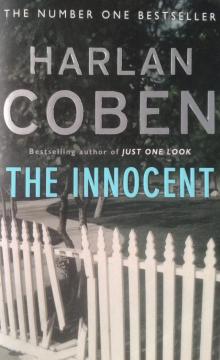 The Innocent
The Innocent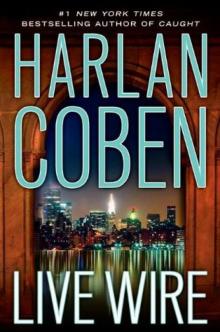 Live Wire
Live Wire Play Dead
Play Dead Drop Shot
Drop Shot Seconds Away
Seconds Away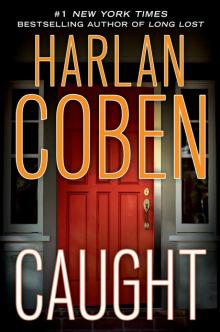 Caught
Caught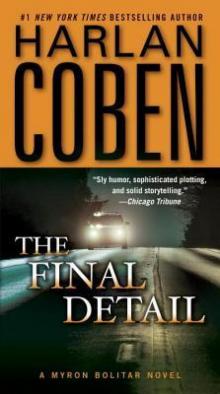 The Final Detail
The Final Detail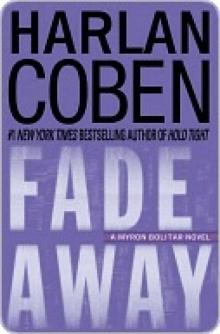 Fade Away
Fade Away Home
Home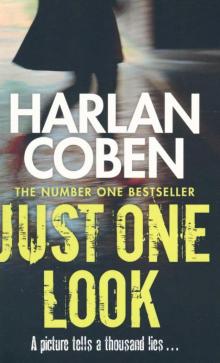 Just One Look
Just One Look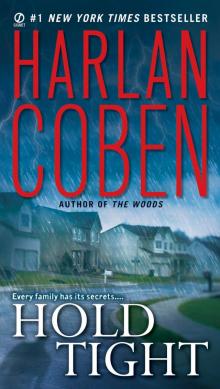 Hold Tight
Hold Tight Fool Me Once
Fool Me Once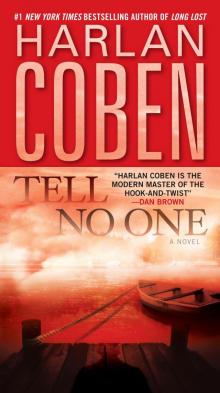 Tell No One
Tell No One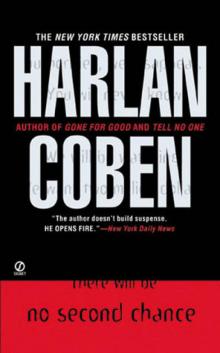 No Second Chance
No Second Chance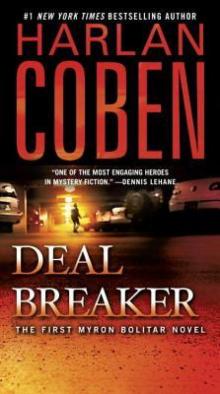 Deal Breaker
Deal Breaker Long Lost
Long Lost One False Move
One False Move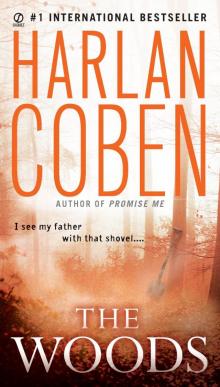 The Woods
The Woods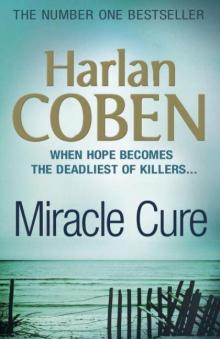 Miracle Cure
Miracle Cure Found
Found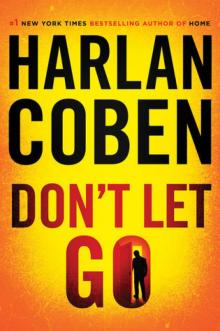 Don't Let Go
Don't Let Go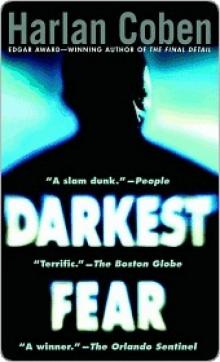 Darkest Fear
Darkest Fear The Stranger
The Stranger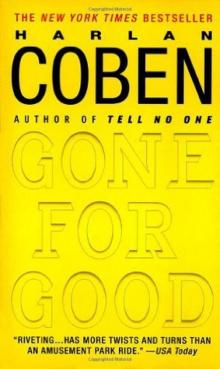 Gone for Good
Gone for Good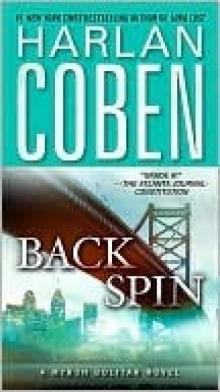 Back Spin
Back Spin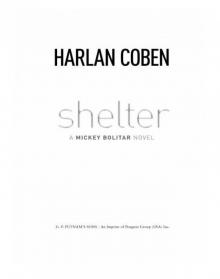 Shelter
Shelter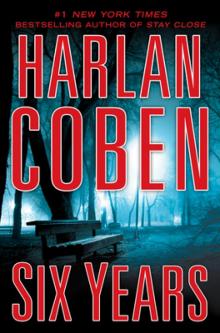 Six Years
Six Years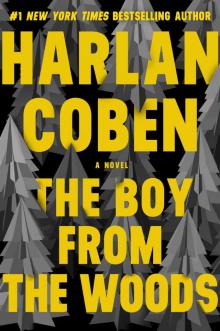 The Boy from the Woods
The Boy from the Woods Missing You
Missing You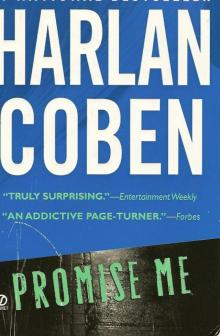 Promise Me mb-8
Promise Me mb-8 The Final Detail: A Myron Bolitar Novel
The Final Detail: A Myron Bolitar Novel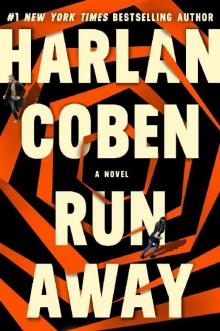 Run Away
Run Away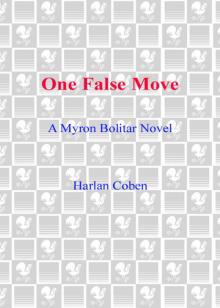 One False Move: A Myron Bolitar Novel
One False Move: A Myron Bolitar Novel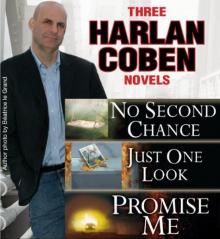 Three Harlan Coben Novels
Three Harlan Coben Novels the Woods (2007)
the Woods (2007) Tell No One (2001)
Tell No One (2001) the Innocent (2005)
the Innocent (2005)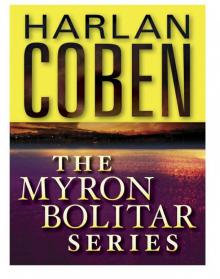 The Myron Bolitar Series 7-Book Bundle
The Myron Bolitar Series 7-Book Bundle Gone for Good (2002)
Gone for Good (2002) Caught (2010)
Caught (2010) Hold Tight (2008)
Hold Tight (2008)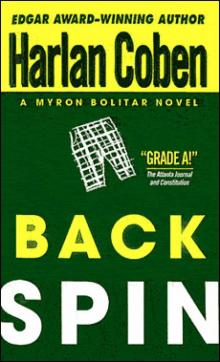 04 - Back Spin
04 - Back Spin Miracle Cure (1991)
Miracle Cure (1991) Harlan Coben 3 Novel Collection
Harlan Coben 3 Novel Collection Just One Look (2004)
Just One Look (2004)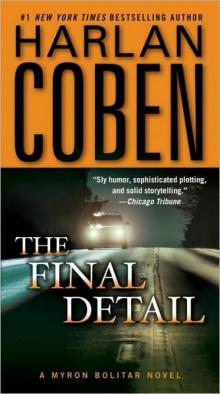 The Final Detail mb-6
The Final Detail mb-6 Play Dead (2010)
Play Dead (2010)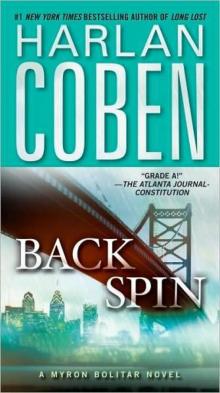 Back Spin mb-4
Back Spin mb-4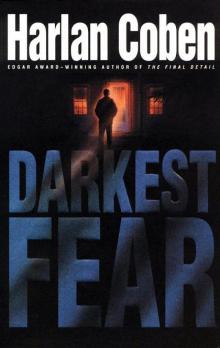 Darkest Fear mb-7
Darkest Fear mb-7